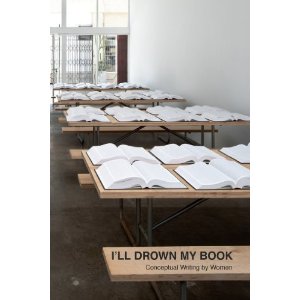Perhaps you will not be quite as excited as I am about this series of lectures. I may or may not be trying to get everyone I know to attend these with me. Here is all the info!
Shakespeare
Monday, April 23 at 1:15 pm – Robert Armitage : Shakespeare - From Stratford-on-Avon to The New York Public Library
Discover the world of William Shakespeare at NYPL on his celebrated birthday. Ponder textual problems in the quartos and folios. Explore illustrated editions of the plays and poems. Experience Shakespearean research through 21st century databases. After the lecture, twenty members of the audience (drawn by lot) are invited to view the Shakespearean holdings, including the First Folio, in the Library's Berg Collection of English and American Literature. Robert Armitage is the Humanities Bibliographer at the Stephen A. Schwarzman Building, NYPL. His popular lectures on the Library’s collections include Elusive Jane Austen, Out of the Blacking Factory , Subversive Shaw, and others.
Tuesday, April 24 at 1:15 pm – Margaret Mikesell Tabb : Fathers and Sons in Hamlet - Shakespeare’s preoccupation with the father-son nexus in Hamlet is reflected in early modern English society more largely, where a plethora of texts on the family appeared during the 16th and 17th centuries. This talk will focus on two kinds of these didactic texts: the middle-class family treatise, written by ministers seeking to define the newly Protestant family; and the humanist princely treatise, authored variously by kings and court intellectuals, which articulated one important vision of ruling. These texts offer competing prescriptions for sons which can help us understand the fissures and hesitations marking Hamlet’s portrayal and the tortured complexity of his response to his father’s demand for revenge. Margaret Mikesell Tabb is professor of English at John Jay College (CUNY). An editor of Juan Luis Vives’ Instruction of a Christen Woman (1523), she writes on early modern gender in the plays of Shakespeare and his contemporaries.
Wednesday, April 25 at 1:15 pm - Linda Neiberg : Marmorializing the Dead in Romeo and Juliet, Othello,and The Winter’s Tale - As several critics have noted in recent years, Reformation revisions to burial rites and obsequies for the dead engendered anxieties about mortality and closure, remembrance and annihilation. My project argues that, as the corpse is erased from official liturgies and religious practices, it resurfaces frequently—and often quite spectacularly—on the stage, where it also becomes the object of erotic attraction. The seemingly-dead, marble-like bodies of Juliet, Desdemona, and Hermione are suggestive of the growing popularity of monumental tombs and mortuary statues (substitutes, in one sense, for abrogated rituals) and likewise point up the role of eroticized stage corpses in bridging what Howard Barker calls the “appalling chasm” between the living and the dead.
Linda Neiberg is a doctoral candidate in the Ph.D. Program in English at The Graduate Center (CUNY) and a Communication Fellow at the Bernard L. Schwartz Communication Institute at Baruch College, CUNY. Her dissertation is titled, Exquisite Corpses: Fantasies of Necrophilia in Early Modern English Drama.
Thursday, April 26 at 1:15 pm - Andras Kisery : Hamlet and the Ambassadors - Hamlet is set in a single location: Elsinore. People leave for foreign countries and return, ambassadors come and go, but no scene takes place outside the environment of the royal castle. The talk will imagine what this setting and what the embassies and foreign travel mean for the play and what it would have meant for Shakespeare’s contemporaries to learn about Denmark from the stage. Andras Kisery is assistant professor of English at The City College of New York, and is currently working on a book, Politicians in Show: Drama and the Circulation of Political Knowledge in Early Modern England.
Friday, April 27 at 1:15 pm - Barry Nass : The Parable of the Good Samaritan and The Taming of the Shrew
Literary criticism has traditionally found little of religious or biblical import in Shakespeare’s The Taming of the Shrew, a play in which the abusive treatment of Katherine—and, by extension, all independent-minded women—has puzzled, troubled, or outraged audiences over the centuries. Indeed, George Bernard Shaw declared that “no man with any decency of feeling can sit it out in the company of women without being extremely ashamed of its lord-of-creation moral.” This lecture calls for a reassessment of the comedy by arguing that it is informed throughout by one of the best known of biblical parables, the story of the Good Samaritan. Medieval and Renaissance interpretations of the parable in fact suggest that, rather than condoning the right of its male characters to cruelly lord it over others, the play puts sharply into question the self-serving and domineering actions of the Lord toward Sly and of Petruchio toward Katherine. Barry Nass is Associate Professor in the Department of English at Hofstra University.









